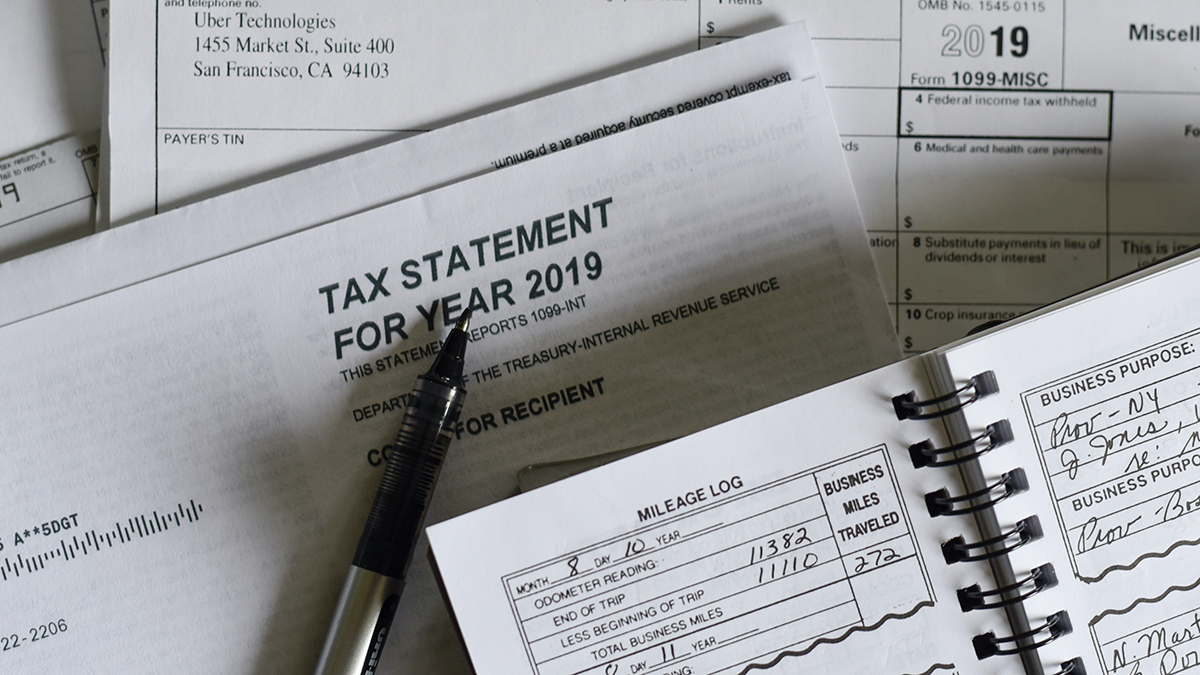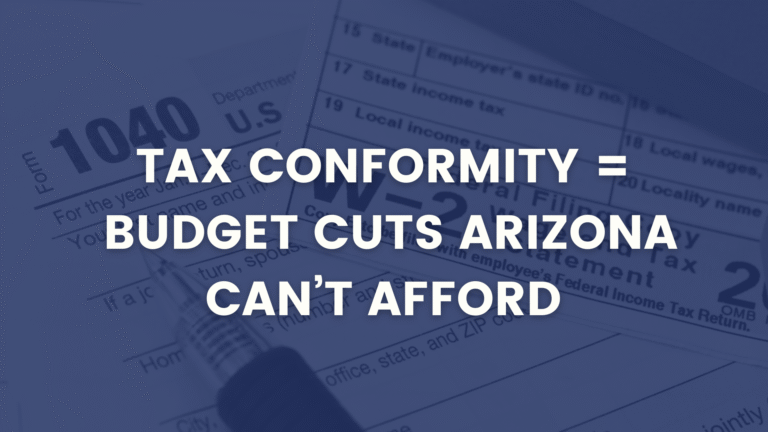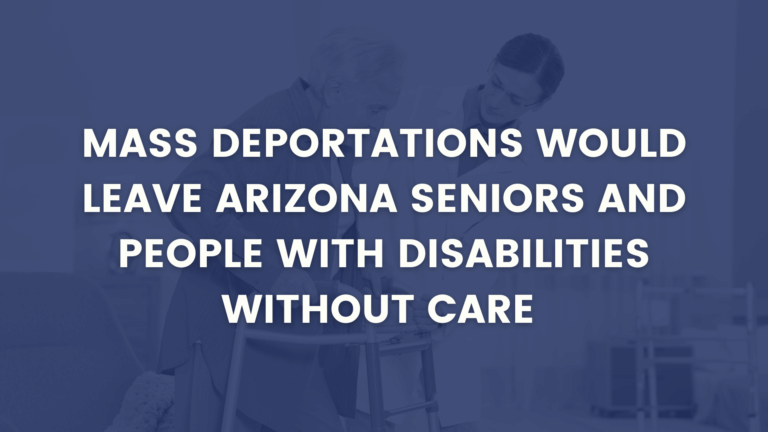
Are State Lawmakers Working for a Fairer Tax Code for All Arizonans?
The Arizona legislature has cut taxes every year since 1990, resulting in $4.4 billion less in annual state revenues when adjusted for inflation. But most Arizonans have not benefited from the almost three decades of annual tax cuts. While our tax code is filled with loopholes and tax breaks for corporations and the wealthy, a recent study showed that low- and middle-income Arizonans pay a larger portion of their income in state and local taxes than do wealthy families. Arizona’s upside-down tax code is pushing the state’s low-income taxpayers deeper into poverty, while corporations and the rich are not paying their fair share for things like education, public safety, and infrastructure which we all benefit from.
Here are four steps lawmakers should take this session toward a fairer tax code for all Arizonans:
-
Freeze the automatic growth of corporate private school tax credits
The tax credit which corporations get to support private school tuition has a cap that automatically increases by 20% each year. Nothing else in the budget is allowed to grow on autopilot by 20% annually, and the impact on state revenues is evident. In 2007, the first year of the corporate tax credit program, the cap was $10 million. In the current budget year, it is $89 million. By 2025, the cap will reach $267 million. It is time for lawmakers to repeal the automatic growth provision of corporate private school tax credits.
-
Oppose a tax cut for digital goods
SB1460 will provide a sales tax exemption for certain online goods which are currently taxed. The League of Cities and Towns estimates this tax cut will cost Arizona’s General Fund $59.8 million annually and will reduce Classroom Site Fund revenues to pay teacher salaries by more than $7 million annually. If this bill passes, and as more and more of our economy shifts to online transactions, Arizona’s sales tax base will continue to shrink leading to more sales tax rate increases and an even more regressive tax code that hurts those who earn less.
-
Reject all new tax cuts and credits like the proposed tax credit for affordable housing
Tax credits cost the state budget $453 million last year and have been growing fast. Once tax credits are enacted, lawmakers do very little to ensure Arizona receives the promised return on investment. Lawmakers are still considering a tax credit bill this session for banks and developers who build affordable housing. Over a ten-year period, this tax credit could reduce state revenues by up to $1 billion. With that same level of investment, lawmakers could put $50 million annually for the next ten years into the Housing Trust Fund – a far better alternative for increasing affordable housing in Arizona than another tax credit.
-
Conform to the federal tax changes without any new state tax cuts
Arizona stands to gain $155 million to $230 million in General Fund revenues if it conforms the Arizona tax code to the federal tax changes enacted in 2017. Rather than directing those additional revenues to better prepare for the next economic downturn or toward increased investments in our public schools, some lawmakers want to direct the additional revenues toward a tax cut that will benefit the wealthiest Arizonans. At a time when we are asking Arizona’s students to wait another three years for the classroom resources that were cut a decade ago, and with Arizona unprepared for next recession, it simply does not make sense to change our tax code to overwhelmingly benefit the richest Arizonans.



